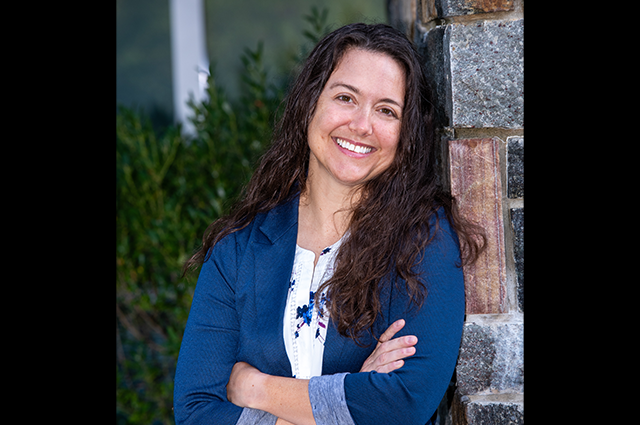Shelly Peyton named Chair of the Department of Biomedical Engineering

Shelly Peyton has been appointed Chair of the Department of Biomedical Engineering at Tufts, effective July 1, 2024. Professor Peyton joins Tufts School of Engineering from the University of Massachusetts (UMass) Amherst and brings with her a wealth of knowledge and expertise in the fields of biomaterials and cancer bioengineering.
Professor Peyton earned her MS and PhD from the University of California, Irvine and completed her postdoctoral training at MIT. She has worked at UMass Amherst since 2011, where she most recently held the role of Armstrong Professional Development and Provost in the Department of Chemical Engineering.
Her research focuses on designing and adapting biomaterials to better understand breast cancer metastasis and traumatic brain injury, as well as developing strategies for repair and treatment. In particular, her lab seeks to learn how a variety of different cell types are able to process information from biochemical and biophysical cues from the extracellular matrix (ECM), and make decisions about migration and phenotype through building simplified models of human tissue with synthetic biomaterials. She uses these engineered systems to understand the physical relationship between metastatic breast cancer cells and the tissues to which they spread, the role of matrix remodeling in drug resistance, and how to create bioinspired mechanically dynamic and activatable biomaterials.
Professor Peyton won a prestigious NSF CAREER Award in 2015 for her work developing materials to improve cancer drug delivery. She has been named a Kavli Fellow of the National Academy of Sciences, a Pew Biomedical Scholar, and a Fellow of organizations such as the Biomedical Engineering Society and the American Institute for Medical and Biological Engineering. Her research has received funding from the National Science Foundation, National Institutes of Health, and the Office of Naval Research, among other sources.
In addition to her research expertise, Professor Peyton demonstrates a commitment to cultivating academic and professional growth for others and fostering an inclusive environment. At UMass Amherst, she was the director of the Materials-focused Undergraduate Research Applied to the Life Sciences (MURALS) REU program, a nine-week summer research experience for undergraduate students that includes mentorship and professional development opportunities. She was also a director of the UMass Postbaccalaureate Research Education Program (PREP) which supports students from groups underrepresented in STEM to pursue doctoral degrees in biomedical science. In her role as Graduate Program Director, Peyton prioritized increasing the diversity of the graduate student body.
Professor Peyton plans to bring the same dedication to encouraging research excellence and professional growth for all members of the department to her role at Tufts. As the department looks to the future, Peyton’s leadership aims to build on Professor Sergio Fantini’s service and leadership as interim chair during the transition period, and support continued success within the department
Department:
Biomedical Engineering